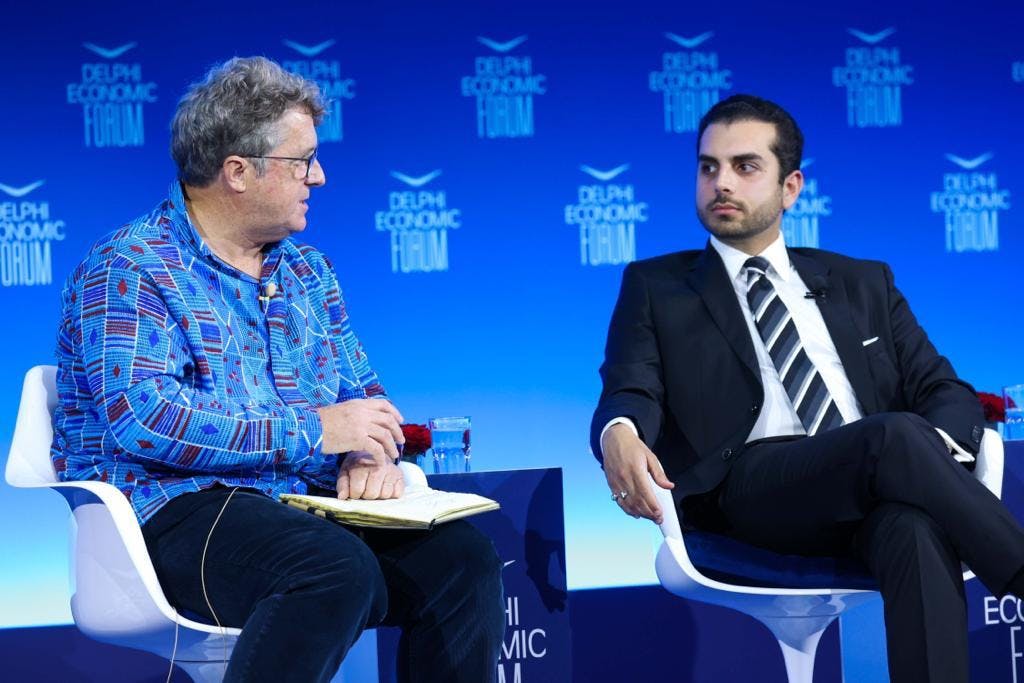Terrorists in Afghanistan More Powerful Today Than Before 9/11, Pro-American Afghans Warn
Under Taliban rule today our foes have greater military capabilities and more confidence than in 2001, says Afghan National Resistance Front.

Following the American surrender of Afghanistan in August a year ago, terrorist groups organizing under the Taliban appear to be in a far more powerful position to attack the United States than they were before 9/11.
“Terrorism today is much stronger than it was in 2001,” warns the head of foreign relations for the anti-Taliban military group, the National Resistance Front of Afghanistan, in a roundtable discussion last week with Founder members of the Sun.
“People believing that terrorist threats emanating from Afghanistan have been defeated do not understand how much terrorism was able to preserve itself after 2001, especially in the past few years, and how much it was able to expand inside of Afghanistan,” is how Ali Nazary of the NRF put it at the roundtable discussion Thursday.
Even at the height of its power in the 1990s, the Taliban was limited by armed opposition from the Northern Alliance. Now, despite the military efforts of the NRF and other small anti-Taliban groups, the Islamic jihadist network wields unprecedented control over nearly all of Afghanistan.
Assisted by the state, Al Qaeda and ISIS are consolidating their power with freedom of movement across the country and access to the Taliban’s supply of weaponry and ammunition.
Unlike before 9/11, Mr. Nazary said, jihadist groups are emboldened by a conviction in their ability to defeat the U.S. and NATO and earn concessions at the negotiating table, given President Biden’s withdrawal from the country and its negotiations with Taliban members.
“It’s able to sell this narrative to recruit more people into its cause,” Mr. Nazary explained, as the Taliban has granted passports to the thousands of foreign fighters who are flocking to the country.
Dangers are also emerging from the Pakistani branch of the Taliban, which seeks to overthrow the Pakistani government, with 6,000 of its members currently in Afghanistan. “If Pakistan is destabilized, there is a risk of their nuclear weapons falling into the hands of terrorists,” Mr. Nazary said.
The international community is failing to respond to these warning signs. “The realities are not being accepted,” he said. “They are not looking into the future at how the current threats might cause another catastrophe.”
While the Taliban supreme leader Haibatullah Akhundzada claims that jihad against so-called infidels will continue until the end of time, Mr. Nazary urges the West to recognize that “the current struggle is not a civil war. It’s the continuation of the global war on terror which started after 9/11.”
As the Taliban seeks to secure international legitimacy, terrorist organizations are currently attacking local targets — as seen in the East African Islamic insurgence group Al-Shabaab’s offensives in Somalia and Ethiopia — not on Western countries.
“They’re focused on growing their strength in the immediate vicinity, but the stronger they get within Afghanistan, the harder it will be for the U.S. to do anything about it when they do start planning attacks abroad,” an Afghanistan researcher at the think tank on defense and foreign affairs, the Institute for the Study of War, Peter Mills, told the Sun.
American military officials have estimated in congressional briefings that the Taliban would need between six months and 12 months to develop the capability to conduct an attack abroad. Meanwhile, the American surrender of Afghanistan deprived Washington of its ability to gather intelligence and its abandonment of our air bases in Afghanistan is weakening our counterterrorist strategy.
The NRF was founded after the Taliban took control of the country in August 2021 by Afghan politician Ahmad Massoud, the son of Ahmad Shah Massoud, who earned the sobriquet “Lion of Panjshir” for his resistance to the Soviet invasion of Afghanistan in the 1980s.
Mr. Nazary contends the NRF constitutes the only organized resistance to the Taliban in the country, claiming loyalty to the Islamic Republic of Afghanistan. Lacking international assistance, the NRF is “completely isolated,” Mr. Nazary said.
“Those who went into Afghanistan to fight against terrorism and for democracy all of a sudden abandoned that cause,” he said last week. American state department officials have held more meetings with the Taliban in the past year than with the NRF, he said.
The NRF maintains control of the only region in Afghanistan out of the Taliban’s hands, the Panjshir Valley, operating 12 military offices with the few weapons they were able to store before the Taliban captured Kabul. “The NRF is able to carry out insurgency-style attacks, but they’re not controlling large amounts of terrain,” Mr. Mills said.
Yet Mr. Nazary noted that opposition forces defeated the Soviet Union empty-handed each of the nine times it invaded the Panjshir Valley between 1980 and 1985. “The enemy has better capabilities and resources than us, but we are able to sustain ourselves because of motivation, morale, and legitimacy,” he asserted.
To defeat international terrorism, Mr. Nazary said, “there needs to be some international effort, because we’re the last voices of democracy in the country. If we’re not there tomorrow, who’s going to challenge these terrorists?”

